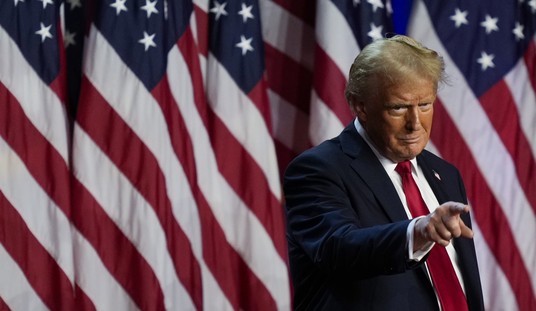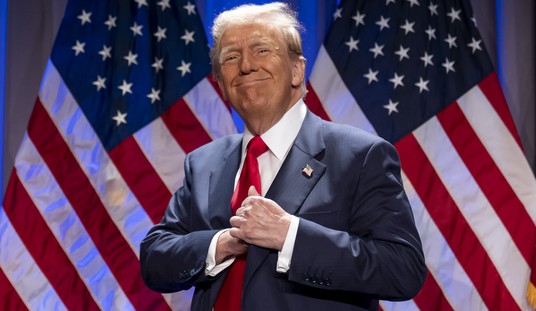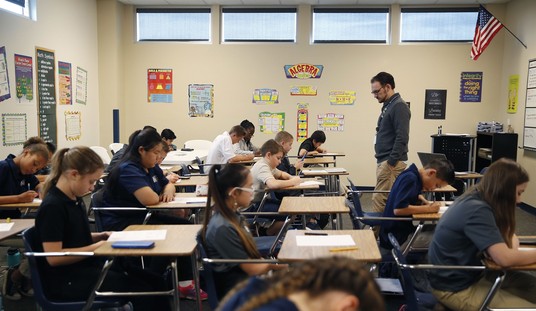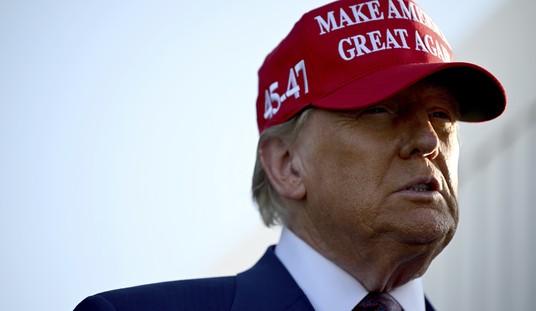As anticipated, Attorney General Jeff Sessions has resigned from office today. It is said that he did so at President Trump’s request. Ever since Sessions’ decision to recuse himself from the Trump/Russia collusion case, the President has openly expressed his displeasure with him and appears to be quite pleased about his resignation.
We are pleased to announce that Matthew G. Whitaker, Chief of Staff to Attorney General Jeff Sessions at the Department of Justice, will become our new Acting Attorney General of the United States. He will serve our Country well….
— Donald J. Trump (@realDonaldTrump) November 7, 2018
The President has appointed Matthew Whitaker, Sessions’ current Chief of Staff, as acting attorney general. With last night’s pickup of four additional Republican seats in the Senate, Trump’s nominee will likely have a much easier time moving through the senate confirmation process.
Shortly after being sworn in as Attorney General, Sessions explained his decision to recuse himself from the most consequential, politically charged case since Watergate. Sounding more like a boy scout than the nation’s top lawyer, Sessions announced his intentions:
During the course of the last several weeks, I have met with the relevant senior career Department officials to discuss whether I should recuse myself from any matters arising from the campaigns for President of the United States.
Having concluded those meetings today, I have decided to recuse myself from any existing or future investigations of any matters related in any way to the campaigns for President of the United States.
What could possibly explain such a move by one of Donald Trump’s earliest supporters? Sessions was the first senator to endorse Trump and rapidly became a trusted Trump advisor. Yet, he allowed pressure from the left over two minor contacts with a Russian ambassador to make the decision for him.
During the July 2016 Republican National Convention, Sessions gave a speech at an event sponsored by the Heritage Foundation. Afterward, he spoke to a group of ambassadors, which included Russian ambassador Sergey Kislyak. This wasn’t even a one on one discussion.
Then, in September 2016, Sessions held a meeting with Kislyak in his office. Why he failed to disclose these interactions during his Senate Confirmation hearings is a mystery as each contact, especially the first that he had no control over, could have been so easily dealt with at the time. Holding a meeting with a Russian ambassador in his office, in and of itself, is innocuous. “Ambassadors are in Washington to represent their country’s interests, which often requires contact with legislators involved in debates over trade, defense, or anything else, really.” Nevertheless, when asked if he had any involvement with Russians during his confirmation hearing, he said no.
Later, when the encounters with Kislyak came to light, Sessions was accused of lying under oath. Predictably, there were even calls for his resignation. It was this intense pressure that led to his decision.
Even after the fact, Sessions could have explained away his remarks. Perhaps he didn’t consider a brief meeting in his office with a Russian ambassador to be “involvement with the Russian’s.” Politicians have gotten away with far more serious “misstatements” by simply saying, “I misspoke.” Just ask Hillary Clinton.
At any rate, Jeff Sessions is apparently not the “tough it out” kind of guy. So, with Deputy Attorney General Rod Rosenstein standing behind him, Sessions explained that he talked it over with his staff and decided the best way to handle it was to recuse himself.
Considering Rosenstein had so many conflicts of interest in this case, Session’s decision was irresponsible and ill-considered. It is inexplicable that Sessions would turn the case over to an Obama-era official with such a long history of involvement with the Clintons. There were so many reasons why this was a bad idea.
First, Rosenstein’s wife, Lisa Barsoomian, is a Washington Freedom of Information Act (FOIA) attorney. Dick Morris explains:
“She is a protégée of R. Craig Lawrence, whose law firm defends clients, all Democrats, against FOIA requests. They have represented Hillary Clinton 17 times, Bill Clinton 40 times, Barack Obama 45 times, Robert Mueller three times and on five occasions, the FBI.”
Rush Limbaugh reminds us that Rosenstein himself was a member of the prosecution team that exonerated Hillary Clinton in the Whitewater scandal (and both Clintons in the Travelgate and Filegate scandals). Shortly after Rod Rosenstein cleared Hillary, his wife represented Bill Clinton in a 1998-99 civil case in federal court.
By the time of Session’s recusal, the enormity of this case was undeniable.
Given its importance, why would Sessions exclude President Trump, or any members of his legal team, from this critical decision?
It’s understandable that Trump would be irate over such a decision. The New York Times reported that several days after his recusal, Sessions traveled to Mar-A-Lago about other business.
Mr. Trump, who had told aides that he needed a loyalist overseeing the inquiry, berated Mr. Sessions and told him he should reverse his decision, an unusual and potentially inappropriate request.
Mr. Sessions refused.
Of course, Mueller investigated this episode as he mulled obstruction of justice charges against Trump. The NY Times gleefully reported:
The special counsel’s interest demonstrates Mr. Sessions’s overlooked role as a key witness in the investigation into whether Mr. Trump tried to obstruct the inquiry itself. It also suggests that the obstruction investigation is broader than it is widely understood to be — encompassing not only the president’s interactions with and firing of the former F.B.I. director, James B. Comey, but also his relationship with Mr. Sessions.
Investigators have pressed current and former White House officials about Mr. Trump’s treatment of Mr. Sessions and whether they believe the president was trying to impede the Russia investigation by pressuring him. The attorney general was also interviewed at length by Mr. Mueller’s investigators in January.
Reporters questioned Rudy Giuliani about Trump’s request that Sessions reverse his recusal. He replied: “a request that Mr. Sessions reassert control over the Russia investigation would be within the bounds of the president’s authority. ‘Unrecuse’ doesn’t say, ‘Bury the investigation.’ It says on the face of it: Take responsibility for it and handle it correctly.”
Unfortunately for the country, Sessions recused himself and we’ve all had to endure the ensuing witch-hunt. But the only way through it is through it. The Mueller investigation has nearly reached its conclusion and his final report could be released at any time. If Mueller has anything valid to charge the President with, we will find out soon. If not, it’s time to end this farce.













Join the conversation as a VIP Member